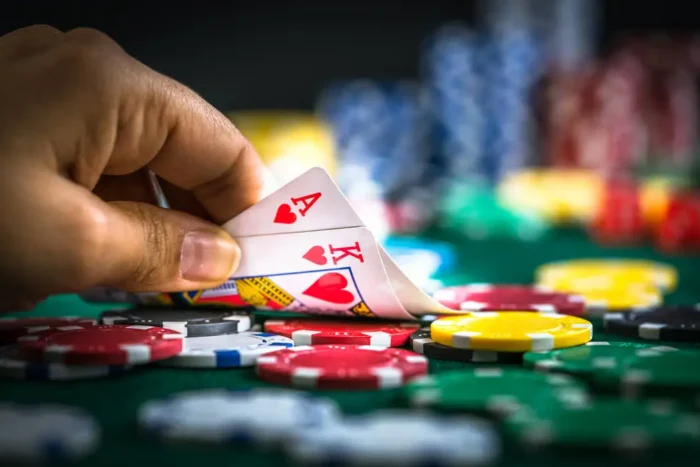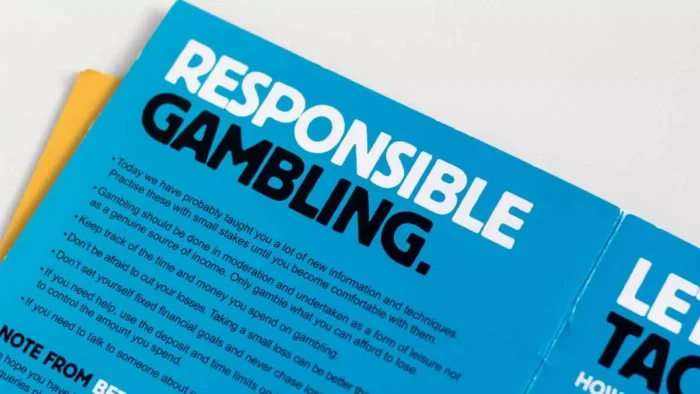
In the past decade, the online gambling industry has experienced unprecedented growth. The advent of high-speed internet and the proliferation of smartphones and tablets have made online casinos accessible to millions of people around the world. According to a report, the global online gambling market is expected to reach $370 billion by 2024. This growth is fueled by the increasing popularity of digital platforms, the legalization of online gambling in various regions, and the innovation of online gambling platforms.
Online casinos have revolutionized the way people gamble. Players can now access a wide variety of casino games such as poker, blackjack, roulette, and slots from the comfort of their homes or on the go. Technological advancements have also enabled online casinos to offer live dealer games, providing a more immersive and realistic gambling experience. Moreover, the rise of blockchain technology and the use of cryptocurrencies have made online gambling more secure and transparent.
As the popularity of online casinos continues to soar, it is more important than ever to promote responsible gambling. Responsible gambling is the practice of playing casino games in a way that is safe and controlled, minimizing the potential negative impacts of gambling. It is crucial for both the individual gambler and the broader community.
For the individual, responsible gambling helps prevent the development of gambling-related problems, such as addiction and financial distress. Gambling should be viewed as a form of entertainment, not as a way to make money. It is essential to set limits on time and money spent on gambling and to stick to those limits.
For the broader community, responsible gambling is key to maintaining the integrity and sustainability of the gambling industry. It helps prevent underage gambling, protects vulnerable individuals, and minimizes the potential negative social impacts of gambling. Moreover, promoting responsible gambling is essential for the long-term success of online casinos as it helps build trust and loyalty among players.
Definition of Responsible Gambling

Responsible gambling involves being aware of the potential risks associated with gambling and taking proactive steps to minimize these risks. It is about maintaining control over one’s gambling activities and making informed decisions about how much time and money one is willing to spend. Key aspects of responsible gambling include setting limits on time and money, treating gambling as a form of entertainment rather than a way to make money, and being aware of and respecting one’s own limits.
Online casinos often provide tools and resources to help players gamble responsibly, such as the option to set deposit limits, loss limits, and time limits. They may also offer self-exclusion programs, which allow players to take a break from gambling for a specified period or to exclude themselves from gambling altogether.
Why is it Important?
Responsible gambling is crucial for several reasons:
- Prevention of gambling addiction ─ Gambling addiction is a serious mental health issue that can have devastating consequences for individuals and their families. By gambling responsibly, individuals can reduce the risk of developing a gambling addiction.
- Financial well-being ─ Gambling responsibly helps ensure that individuals do not spend more money than they can afford to lose. This is crucial for maintaining one’s financial well-being and preventing debt and financial distress.
- Mental well-being ─ Gambling can be a fun and exciting activity, but it can also be stressful and anxiety-inducing. Responsible gambling helps ensure that gambling remains a fun and enjoyable activity rather than a source of stress and anxiety.
- Social well-being ─ Gambling responsibly helps minimize the potential negative social impacts of gambling, such as relationship problems, legal issues, and harm to vulnerable individuals.
- Integrity of the gambling industry ─ Promoting responsible gambling helps maintain the integrity and sustainability of the gambling industry. It helps build trust and loyalty among players and ensures that online casinos are able to operate responsibly and ethically.
3 Tips for Responsible Gambling

One of the most important aspects of responsible gambling is setting limits on both time and money spent gambling. Before you start gambling, decide how much money you are willing to lose and set a time limit for your gambling session. Online casinos often provide tools that allow you to set deposit limits, loss limits, and time limits. Make use of these tools and stick to your limits.
1. Playing for Entertainment, Not for Income
Gambling should be treated as a form of entertainment, not as a way to make money. The odds are always in favor of the house, and it is important to remember that gambling is a game of chance. Winning is not guaranteed, and losses are always a possibility. Play for fun and enjoy the excitement of the game, but do not rely on gambling as a source of income.
2. Avoiding Gambling When Feeling Stressed, Depressed, or Under the Influence
Gambling under the influence of alcohol or drugs, or when feeling stressed or depressed, can lead to poor decision-making and increased risk-taking. It is important to be in a clear state of mind when gambling and to avoid gambling as a way to escape negative emotions.
3. Knowing and Understanding the Games You Are Playing
Before you start gambling, make sure you understand the rules of the game and the odds of winning. This will help you make informed decisions about how much to bet and when to stop. Online casinos often provide guides and tutorials on how to play their games, and it is a good idea to familiarize yourself with these before you start playing. Additionally, playing free versions of the games can be a great way to practice and understand the rules better before playing with real money.
4 Tools and Resources for Responsible Gambling

Many tools and resources are available to help individuals gamble responsibly. Online casinos often provide a range of tools to help players manage their gambling activities, and there are also external resources available for those who need additional support.
1. Self-exclusion Programs
Self-exclusion programs allow individuals to take a break from gambling for a specified period or to exclude themselves from gambling altogether. Most online casinos offer self-exclusion options, and there are also national self-exclusion programs available in many countries. For example, in the UK, the GAMSTOP program allows individuals to self-exclude from all online gambling sites licensed in the UK.
2. Gambling Calculators
Gambling calculators are online tools that help individuals calculate their potential losses and set limits on their gambling activities. These tools can help you determine how much you can afford to lose and set appropriate deposit, loss, and time limits.
3. Helplines and Support Groups
Helplines and support groups provide support and advice to individuals who are struggling with their gambling activities or experiencing gambling-related harm. These services are often available 24/7 and can provide confidential and non-judgmental support. Some well-known helplines and support groups include GamCare, Gamblers Anonymous, and the National Problem Gambling Helpline.
4. Apps and Online Tools
Several apps and online tools are available to help individuals manage their gambling activities and gamble responsibly. These tools often include features such as deposit limits, loss limits, time limits, and self-exclusion options. Some popular apps and online tools for responsible gambling include Gamban, BetBlocker, and GambleAware.








